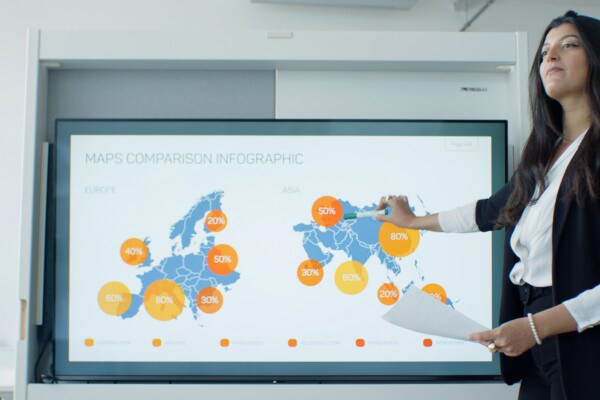At the beginning of the year, most firms operated with some degree of remote working. Then came COVID-19 and everything changed. Firms around the globe rushed to embrace the new normal. The running joke is, “it wasn’t your CIO that delivered your digital transformation, it was COVID-19!” However, without the foundations that your IT teams had already put in place, organisations would not have been able to respond as well as they did.
It’s fair to say that in March 2020, remote working implementation took off. We’ve now passed the initial point of it simply being about maintaining the business-as-usual whilst keeping teams productive and everyone safe. Interestingly, along with the adoption of remote working, we’ve also seen a rapid increase in the acceptance of it – long gone is the stigma of working from home.
As we approach the end of the year, a question that I am starting to hear more and more from businesses is – now what?
I thought I would share my thoughts on the issue. The good, the bad and the still unknown:
- Cybersecurity – This is the number one issue that comes up time and time again, along with Data Protection and Privacy. In fact, the pandemic has ushered in a wave of new security threats with attackers using the work from home shift as a new “way in”. Cybersecurity must remain a priority.
- Collaboration – Face-to-face meetings and random meetups with colleagues at the coffee machine or water cooler are being missed. These small interactions are where company cultures are formed and sometimes where the best unintended creations are born.
- Tech – Nobody likes spending large sums of money on expensive technology. Yet, to continue operating, collaborating and serving clients, it is essential. So, what are the best tools and software to use? Which of your firm’s IT deployments are currently costing money and which are making money? And are you even able to track this?
- Office space and equipment – Everyone’s home working environment will be different. Some firms have provided expenses to cover extra equipment costs and others have not. Yet even if these additional expenses are accounted for, in the future, less traditional real estate means less overhead. This may be one of the largest shifts in business that we see in the coming years.
- Commuting – Nobody misses this right? Surprisingly, whilst many of us are happy to gain the time and money back, it has become apparent that commuting was more than simply A to B. It represented a time when we could relax, read, listen to a podcast and simply be present. This will be a challenge moving forward as many of us look to find a new balance in our lives and our wellbeing.
- Professional development – In-office personal interactions, work-shadowing, asking questions, listening to calls, etc, cannot happen working remotely. New ways need to be found to formalise meetings and ensure development conversations are scheduled. Whilst we are all so busy getting on, we need to be aware of our development and the development of those around us. How, for example, do you make the intangible knowledge, tangible?
Something I learnt early in my career is that the needs, priorities and challenges that you face, are likely reflective of those faced by your clients. It is therefore paramount to stay one step ahead of those needs. One approach that will help you to achieve this is to form meaningful relationships with trusted advisers and thought partners – Together, creating robust and effective business ecosystems that work for your organisation.
To view one of our Case Studies, please click here
Or to speak with one of our Exec Team, about how our experts could work together, please email: info@accordantsolutions.co.uk
We would be delighted to hear from you.




